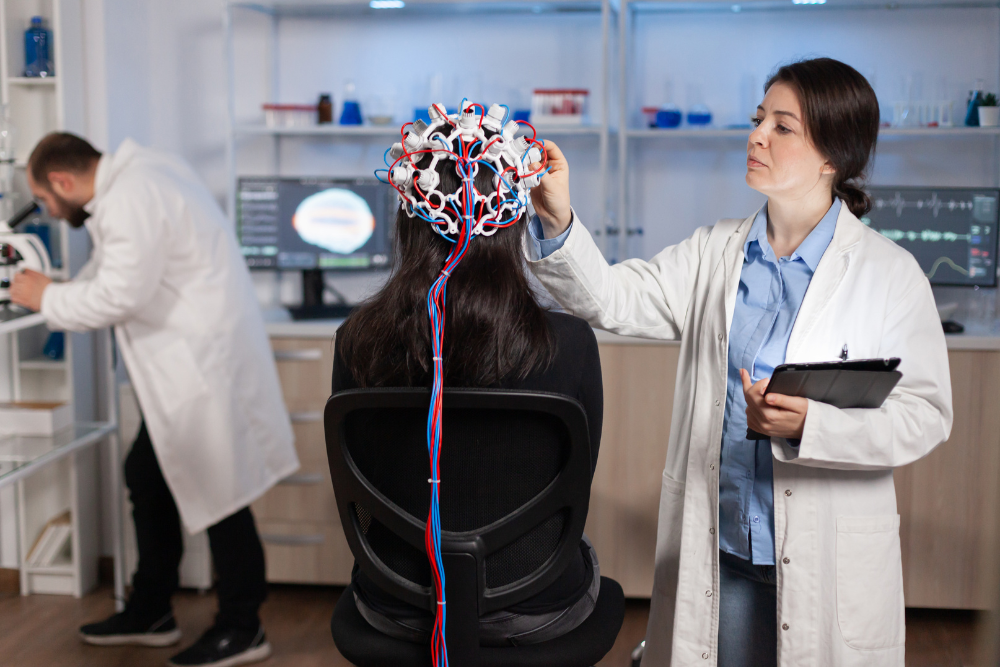Overview
Cardiovascular Medicine refers to the specialized branch of medicine focused on the diagnosis, treatment, and prevention of conditions related to the heart and circulatory system. The cardiovascular system is a critical component of the human body, consisting of the heart, blood vessels, and blood. It plays a central role in pumping oxygen and essential nutrients throughout the body, supporting vital functions and overall health.
Cardiovascular conditions can range from minor, short-term issues to more severe and chronic disorders that require comprehensive medical care. The severity and duration of cardiovascular conditions can vary, and they may be triggered or exacerbated by factors like diet, lifestyle, genetics, and underlying medical conditions. While some mild cardiovascular issues can be managed with lifestyle modifications and medications, severe or persistent conditions often require specialized medical evaluation and treatment.
Cardiovascular conditions can range from minor, short-term issues to more severe and chronic disorders that require comprehensive medical care. The severity and duration of cardiovascular conditions can vary, and they may be triggered or exacerbated by factors like diet, lifestyle, genetics, and underlying medical conditions. While some mild cardiovascular issues can be managed with lifestyle modifications and medications, severe or persistent conditions often require specialized medical evaluation and treatment.
Common Cardiovascular Conditions (Possible Causes)
Cardiovascular conditions can have diverse underlying causes and risk factors. Understanding these factors is essential for effective diagnosis and management. Possible causes of cardiovascular conditions include:
- Atherosclerosis: The buildup of plaque in the arteries, causing reduced blood flow and increasing the risk of heart attacks and strokes.
- Hypertension: High blood pressure is a significant risk factor for heart disease, stroke, and other cardiovascular conditions.
- Arrhythmias: Irregular heart rhythms can result from various factors, including heart diseases, electrolyte imbalances, and congenital issues.
- Heart Valve Diseases: Abnormalities in heart valves can lead to conditions like stenosis or regurgitation, affecting blood flow.
- Congestive Heart Failure: This condition occurs when the heart is unable to pump blood effectively, leading to a backup of fluid in the lungs and other organs.
- Cardiomyopathies: Conditions that affect the heart muscle, potentially leading to heart failure or arrhythmias.
- Congenital Heart Defects: Structural abnormalities present at birth that can impact heart function.
- Thrombosis and Embolism: Blood clots can form and travel through the circulatory system, causing blockages and potentially leading to stroke or heart attack.
Treatment and Care
The management of cardiovascular conditions involves a range of treatment options tailored to the specific condition, its severity, and individual patient needs. Common treatment and care options for cardiovascular conditions include:
- Medications: Various drugs can be prescribed to control blood pressure, lower cholesterol levels, regulate heart rhythms, and manage heart failure.
- Interventional Procedures: Minimally invasive procedures like angioplasty and stent placement can be used to open narrowed arteries.
- Surgical Interventions: Surgeries like coronary artery bypass grafting (CABG), valve replacement, and heart transplant may be necessary for severe cases.
- Lifestyle Modifications: Dietary changes, regular exercise, smoking cessation, and stress management are essential components of cardiovascular care.
- Cardiac Rehabilitation: Post-treatment programs designed to improve cardiovascular health, physical fitness, and overall well-being.
- Preventive Measures: Education and guidance on risk factor modification, including weight management and diabetes control.
- Medication Management: Ensuring proper use and adherence to prescribed medications.
- Risk Assessment: Identifying and addressing individual risk factors for cardiovascular conditions.
When to Consult a Doctor ?
Consult a doctor whenever you experience discomfort or symptoms related to your cardiovascular health, as early detection and intervention are crucial. Additionally, seek consultation with a cardiovascular specialist at Parvathy Institute of Cardiac Sciences if you are experiencing:
- Chest Discomfort: Persistent chest pain or discomfort may indicate an underlying cardiovascular issue, necessitating professional evaluation. If you are searching for a 'cardiologist near me,' our institute is home to some of the 'best cardiologists in Chennai,' ensuring top-notch care for your heart health.
- Palpitations: If you are experiencing irregular or rapid heartbeats that are concerning or accompanied by other symptoms, it is advisable to consult with a specialist. Our 'heart specialists' are dedicated to providing comprehensive care for your cardiac well-being.
- Shortness of Breath: Unexplained shortness of breath, whether at rest or during physical activity, could be a sign of a cardiovascular problem and warrants prompt attention.
- Swelling: Edema or swelling in the legs, ankles, or abdomen may indicate heart-related issues, especially if accompanied by other symptoms. Our team, including the 'best cardiologists in Chennai,' is equipped to address such concerns.
- High Blood Pressure: Regular monitoring and consultation are necessary for individuals with hypertension. Our institute offers expert care, including consultation with a 'cardiologist near me.'
- Neurological Symptoms: Immediate attention is required for sudden weakness, slurred speech, loss of consciousness, or other neurological symptoms. Our team, including renowned 'heart specialists,' is ready to provide timely and thorough evaluation
Call +91 98412 98412 for medical emergencies or 044 2238 2248 / +91 98848 99091 to book an appointment.
General (FAQ) For Cardiovascular Medicine
Cardiovascular medicine is used for the diagnosis, treatment, and management of conditions affecting the heart and blood vessels. It encompasses a range of medications and interventions aimed at maintaining or improving cardiovascular health.
The choice of medication for cardiovascular disease depends on the specific condition. Common medications include statins for cholesterol management, beta-blockers for blood pressure control, antiplatelet agents like aspirin, and angiotensin-converting enzyme (ACE) inhibitors for heart failure. The 'best' medicine is determined based on the individual's health profile and the type of cardiovascular disease.
Cardiology is a branch of medicine specializing in the study and treatment of heart-related conditions. Cardiovascular medicine is a broader term that includes not only cardiology but also the comprehensive management of cardiovascular health, involving preventive strategies, diagnostics, and medical interventions.
The four main types of cardiovascular diseases are coronary artery disease, heart failure, valvular heart disease, and arrhythmias. Each type involves specific issues with the heart or blood vessels and may require different approaches to diagnosis and treatment.
Treatment for cardiovascular disease varies based on the specific condition. It may include lifestyle modifications (diet, exercise), medications (for blood pressure, cholesterol, etc.), interventional procedures (angioplasty, stent placement), or surgical interventions (bypass surgery, valve repair). The treatment plan is tailored to the individual's health status and the type and severity of the cardiovascular disease.
Cardiovascular disease is often referred to as heart disease. This umbrella term encompasses various conditions that affect the heart and blood vessels, leading to potential complications and health issues.


















